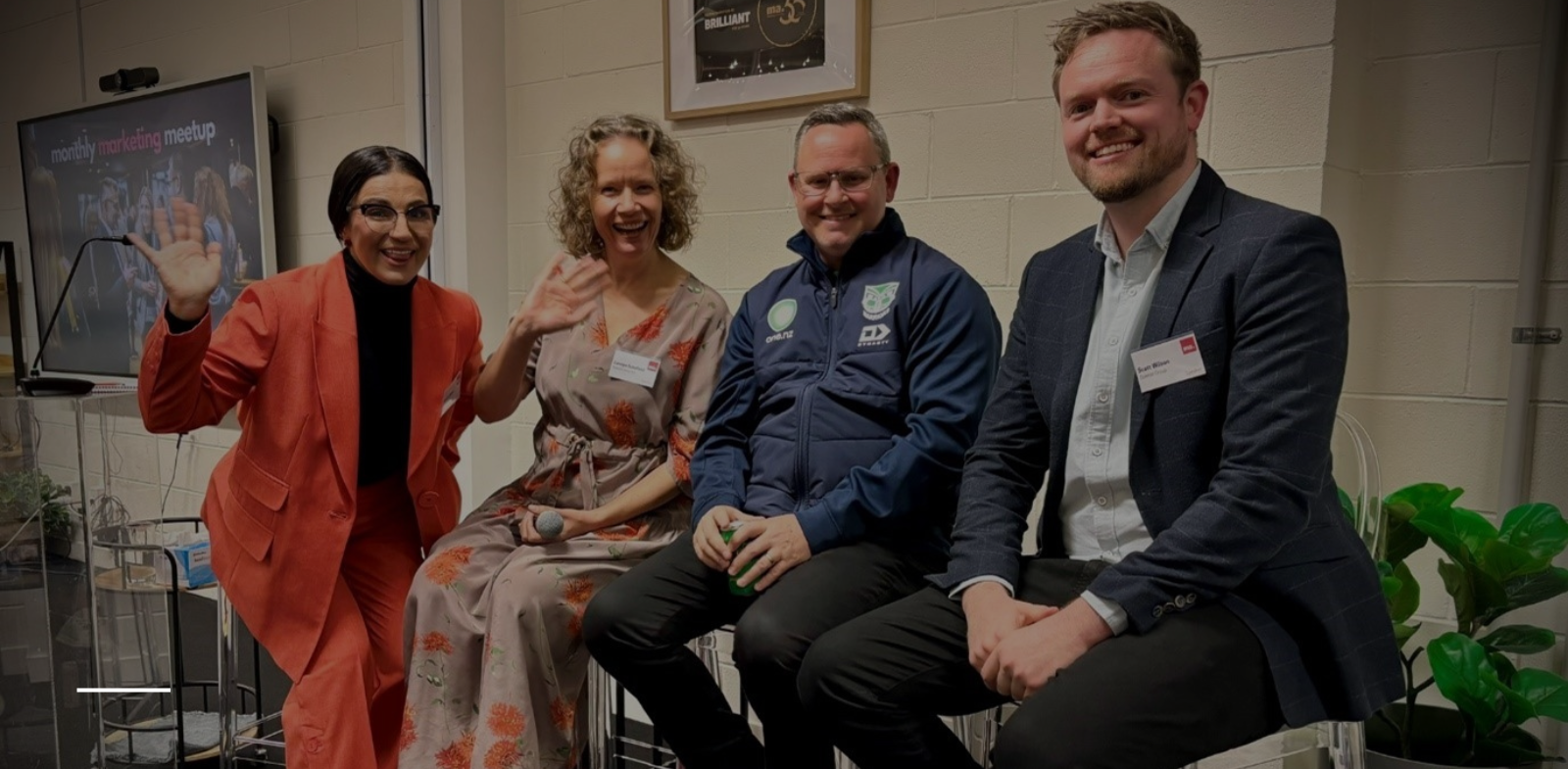
First Published: 07 June, 2024
On Tuesday, May 28, 2024, nearly 100 marketers gathered at the Marketing Association's monthly marketing meetup, organised by the Brand and Customer Special Interest Group.
The panel discussion on building a strong brand highlighted a crucial reminder: your brand is not owned by marketing but by every touch point in your business and your customers. The panel of Carolyn Schofield (BrandScience NZ), Glenn Harris (One New Zealand Warriors), Scott Wilson (Downer Group), and moderated by Marina Strbac (AA New Zealand), shared valuable insights on creating authentic and meaningful experiences for customers and employees.
The panel emphasised the importance of creating experiences that convey your brand’s sense of purpose. This approach helps build emotional connections with customers and creates a loyal following. As Glenn Harris mentioned, "You can't just tell people what you do, you have to make them feel it." This can be achieved by understanding customer needs, exceeding their expectations, and delivering on your brand promise consistently.
Giving customers a reason to believe in your brand is also critical. Scott Wilson shared how Downer Group empowers teams to make decisions that align with the company's purpose and values, creating a sense of ownership and connection to the brand's purpose among employees.
Emotional connections and brand promises go hand-in-hand. However, if what's been delivered day-to-day doesn't match the promise, it can quickly undermine the brand. As Carolyn Schofield emphasised, "You can't sell an empty promise!" It's essential to ensure that every touch point in the business is aligned with the brand promise and delivers on it consistently.
Empowering teams to lead customer experience (CX) throughout the organisation is vital. This approach creates a sense of ownership and accountability among employees, leading to a better customer experience. As Scott Wilson mentioned, "We didn't want to create a bunch of procedures on what is the right CX outcome, so we created a board game that simulates real-life scenarios and encourages teams to respond in a customer-centric way." This approach helps employees understand what an excellent customer experience looks like and how to deliver it.


Downer created the CXplorer board game to help staff learn how to respond to challenges in a customer-centric way.
Surveys and research can provide valuable CX insights, but people may not always provide honest feedback. As Glenn Harris noted, "We settled on three accountabilities in our business: earn everything, consistency of actions, and honest feedback. What I've learned is that not everything that counts can be counted." Staying close to the action and understanding the mood of people through authentic conversations is crucial.
Understanding customer needs involves asking questions like "What is our customer's measure of value?" and "What do they really want from us?" The answer may vary depending on the region, and it's essential to understand these differences to deploy strategies effectively. Scott Wilson said: "We had an initiative where we asked our staff: is your manager a great leader? And then we asked customers, how engaged and visible is the leadership?" This approach helped identify areas for improvement and ensured that leadership was aligned with customer needs.
Culture transformation is essential to building a strong brand. This involves living the brand promise and creating an authentic and meaningful experience for customers and employees. The three pillars of culture transformation mentioned were owning the results, doing it for each other, and doing it for customers. Understanding customer needs and exceeding their expectations is crucial. This involves asking questions like "What is our customer's measure of value?" and "What do they really want from us?"
The panel also discussed the use of AI in CX. AI can be used to summarise customer feedback and create letters to executives capturing the sentiment based on frequency of language and tone of voice. This approach helps leaders understand the pulse of the organisation and make informed decisions. As Scott Wilson mentioned, "We utilised AI to synthesise 3,500 pieces of feedback into a one-page letter to the leadership team, which was so successful that all 14 leaders wanted their own one-pager for their business units."
Building a strong brand requires aligning customer experience, employee experience (EX), and brand promise. By empowering teams, creating emotional connections, and delivering on promises, organisations can create a loyal following and drive business success. As the panel reminded us, your brand is not owned by marketing, but by every touch point in your business and your customers. By living the brand promise and creating an authentic and meaningful experience, organisations can build a strong brand that resonates with customers and employees alike.
Thanks to the panel, Carolyn Schofield, Glenn Harris, Scott Wilson, and moderator Marina Strbac, for an entertaining and engaging discussion that provided valuable insights for building a strong brand.
Finally, quoting PJ Morris (Head of Marketing & Insights – Concrete Division at Fletcher Building), her key takeaways from the discussion were:
✋ stop telling people what you do and have them feel what you do
🪄 give them a reason to believe
😀 emotional connections and your brand promises can be very quickly undermined if what’s been delivered day to day isn’t the same - you can’t sell an empty promise!
💥 empower your teams to lead CX throughout the organisation
📊not everything that counts can be counted

Contact us if you have any suggestions on resources you would like to see more of, or if you have something you think would benefit our members.
Get in TouchSign up to receive updates on events, training and more from the MA.
